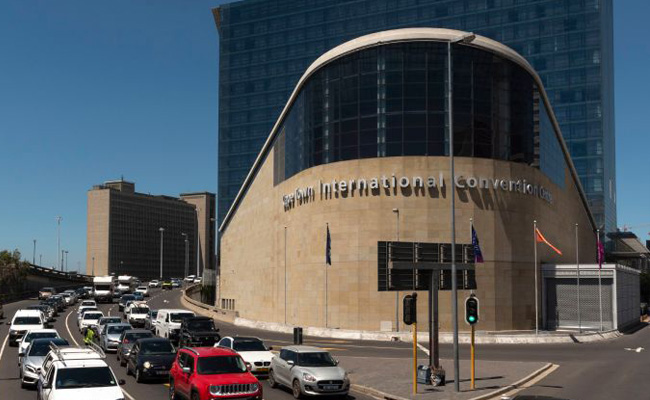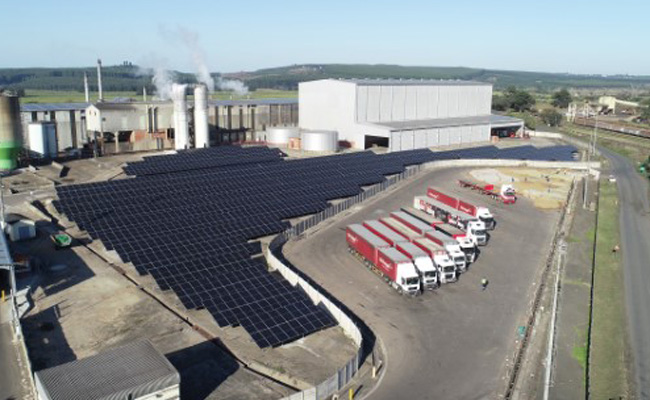The city’s plan to sell its majority stake in the Cape Town International Convention Centre (CTICC) has triggered a political clash: mayor Geordin Hill-Lewis says the deal will unlock nearly R1bn for services, while the GOOD party warns the city is stripping itself of a profitable public asset.
The proposed deal would see the city offload its 72.7% shareholding in the CTICC, freeing up between R800m and R900m while still keeping two board seats and collecting property rates as the landowner. Hill-Lewis argues the sale would allow the centre to raise private capital for expansion while relieving the city of future funding obligations.
Undoubtedly, it has been a fabulous investment for the metro. Since opening in 2003, the CTICC has become one of Cape Town’s most important economic assets. It has generated R66.9bn for South Africa’s GDP, R58bn for the Western Cape’s economy, sustained more than 169,000 jobs and drawn international attention as a premier conferencing venue.
In the financial year to end-June 2024 alone, it hosted 368 events, attracted 311,000 visitors and booked revenue of R400.7m. Its forward book already stretches to 2030, with nearly 400 events confirmed, worth an estimated R1.5bn.
“The CTICC is already run like a private business. The city has no operational role, which is why it’s been so successful,” Hill-Lewis tells Currency. “Why should the state run a conference business? That made sense 20 years ago, but the job is done. Now it’s time to free up capital for new growth elsewhere.”
But GOOD says the sale smacks of short-termism and a lack of transparency. Councillor Wesley Neumann argues the city pushed the proposal to council without audited financials, valuations or expansion costings. “They asked us to make a decision in the dark,” he says.
Neumann argues that because the CTICC is not running at a loss, it should continue generating returns for Cape Town’s residents. “If the CTICC is making a profit then that money should be used for the residents of Cape Town. Why not use the dividends to reinvest in the city?”
The party also accuses the DA-led council of a wider pattern of “asset-stripping”, pointing to the disposal of dozens of municipal properties in recent years.
In Neumann’s view, many of these sales have been undervalued, benefiting a small circle of developers while failing to deliver promised social housing. He draws comparisons to the sell-off of public land during the early 1990s, which entrenched inequality.
The Fruit & Veg site near parliament, announced several times as a social housing project but only recently released to a developer, is cited by GOOD as proof that the city’s assurances cannot be trusted.
Plans to sell the Sea Point Civic Centre came under fire from community members. Posting on Facebook, Jacques Weber, a former councillor who is now the managing director of Double.D Property Consultants, bemoaned the “ongoing loss of community halls and public facilities”.
“A decade ago, it was still possible to find a hall for a function, a dance class, or even a martial arts group,” he wrote. “Today, those opportunities have almost vanished,” he said, adding that Sea Point “continues to densify and transform into a concrete jungle”.
Bursting at the seams
Hill-Lewis, however, frames the CTICC plan as prudent financial management. He says the city’s constitutional mandate is to deliver services and infrastructure, not run commercial ventures.
Currently, the CTICC retains its profits, and reinvests them in expansion and maintenance. The city deliberately structured it this way, choosing not to extract dividends. But now, the centre is effectively bursting at the seams. It cannot accept many new international events because it is simply at capacity. The next logical step is a large-scale expansion – but the city doesn’t want to foot that bill.
The remaining shareholders include the Western Cape government (22.2%) and SunWest International (5.1%).
The CTICC has delivered broad economic ripple effects, from increased hotel occupancy to local supplier development, including R259m in broad-based BEE procurement last year; it also prioritises women-owned businesses.
“It’s probably a good model for how other state-owned companies should be run,” Hill-Lewis says.
But the politics cut both ways, and the DA has been accused of double standards and political points-scoring.
In Joburg, a plan to reassess long-term leases on public land sparked outrage. The Joburg Property Company’s proposal to review sites like Marks Park, Killarney Country Club and the Botanical Garden was condemned as a covert sell-off of green spaces. Community groups protested, opposition parties forced the item off the council agenda, and petitions piled up.
The DA, in opposition, pounced. It accused the ANC-led city of attempting to “sell off” public land through a murky process without valuations or consultation, portraying itself as a defender of community assets, which led to criticism of political opportunism and double standards.
The public consultation process will now test whether Capetonians back the mayor’s vision of unlocking capital for new priorities or side with critics who see the sale as the erosion of its public jewels.
As Lewis sees it, the sale is “a win-win”.
“The city remains in the same position as now, but frees up cash to apply elsewhere – while the CTICC gets the freedom to expand.”
Top image: Cape Town International Convention Centre. Picture: Peter Titmuss/UCG/Universal Images Group via Getty Images.
Sign up to Currency’s weekly newsletters to receive your own bulletin of weekday news and weekend treats. Register here.













I will be changing my vote if this sort of thing continues. The public MUST be given an opportunity to vote and to SEE the transparency if we are to ENTRUST these agents. It smacks of all sorts of nasties loitering in the background. It smacks of kickback territory….
The DA are going to lose votes hands down. Up to now it has been taking care of people and bringing in a much needed income… be careful with this one. Investigate the mayor.
Crazy, it would be nice to know what income the CTICC was earning per annum
Its like paying rent for yr own house.. Whats happening…. With our country.
I dont support the mayor on this. Why sell a profitable asset? Rather use the profits and dividends for the City. If its not managed by the City and its profitable, why sell it? Look to sell buildings/land that need upkeep or are NOT profitable.
Good assets, like the CTICC should never be sold, but just kept for the patrimony of the citizens.
It’s an big NO end of story!
Buying votes for the next Genersl election by liquidating Cape Town assets. Short sighted expedient disgusting DA. Gordon Hill Lewis has ambitions far beyond mayor of Cape Town. He thinks he can ride to the 0residency of SA on the back of the DA, leaving a waste land behind him. The DA must be stopped. Slim bang sy baas!
Let’s mobilize and get the money we need to buy the CTICC. R1 Billion is peanuts. South African companies have huge reserved of capital that they have been loathe to spend due to the uncertain Policy Environment that the ANC has caused over the years.
But they will invest it in our youth
We then use it to:
1. Get our youth without matric a safe environment in which to be taught and to study sourcing the best teachers internationally. The more young people with at least matric the better. This stupid ANC made it compulsory to have matric even if you want to apply to be a general worker (cleaner) in a government institution.
2. We teach the kids with matric but not in Varsity coding, how to use the apps available to start businesses. We teach them how to make apps of their own to solve real world problems in their communities.
3. We teach them entrepreneurial skills and get government officials to come and show them how to access the Transformation Fund.
4. …get the idea?
Clarence P. Esau
CEO: The Clarence and Cele Esau Family Foundation
It is not making financial sense selling that building. This is now one of the DA’s friends that they will sell it to rewards one of their donors. They make out of that build almost a billion rand a year make no sense. But corruption is at the order of the day in South Africa.
Sell it.
Why dont they sell Table Mountain